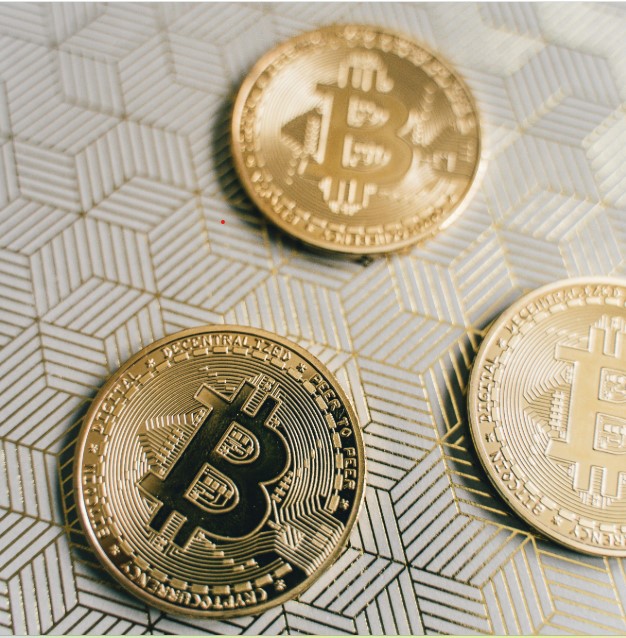Bitcoin continues to be a dominant force in the cryptocurrency world. It’s the first and most well-known digital currency. While it’s earned a reputation for being revolutionary, it’s also known to be very risky. Its rise to dominance has attracted a number of global investors, but its volatile nature, of course, raises an important question. And that is, is Bitcoin a safe bet in crypto trading? This article is going to explore the pros and cons of investing in Bitcoin, India’s stance on crypto trading and whether or not it’s safe in crypto trading.
This question has become particularly important when it comes to crypto trading India. This is where the regulatory environment, market maturing and public perception of cryptocurrencies are still developing.
The king of crypto
Bitcoin was introduced back in 2009 by Satoshi Nakamoto. Since then, it has grown into a trillion-dollar asset class. In the beginning, the public and official authorities were unsure about it. It has now been adopted worldwide, surpassing key institutional benchmarks in both market capitalisation and public awareness.
Why Bitcoin stands out:
-
It’s decentralised, which means no single government or entity controls Bitcoin. It operates on a decentralised blockchain.
-
It has a limited supply with a hard cap of 21 million coins. It’s designed to be deflationary.
-
It’s the most traded crypto, which makes it easier to buy and sell than altcoins.
-
It’s becoming more widely adopted, with growing institutional interest and acceptance as a payment method.
While the currency comes with a range of strengths. It’s important to be aware of its biggest weakness and that is the currency’s price swings. This makes it a speculative investment. Daily price movements of 5% or more are not uncommon. This level of volatility raises many concerns about its safety as an investment.
The case for Bitcoin in a diversified portfolio
There are a number of financial experts who argue that Bitcoin can serve as a hedge against inflation and currency devaluation. As traditional assets like real estate and stocks are starting to face increasing uncertainty. Bitcoin has found a place in diversified investment portfolios.
The benefits of including Bitcoin in your portfolio:
-
Bitcoin doesn’t follow traditional market cycles. There’s no correlation.
-
In the past, Bitcoin has delivered higher returns over 5+ year horizons.
-
Regardless of location, anyone with an internet connection can invest. The currency is borderless.
However, investors should also know that its price is influenced by factors such as regulatory announcements, market sentiment and geopolitical events. This is why it’s so important for traders and investors to educate themselves on bitcoin and cryptocurrency as a whole before entering the market.
Crypto trading in India
India has had an interesting relationship with cryptocurrencies. In the beginning, the country experienced an initial ban and then strict taxation policies. However, in the years that followed, their regulatory stance has matured. This has offered a lot more clarity and opportunity to investors.
Some of the key developments in India includes:
-
Taxation framework: As of 2025, the Indian government imposes a 30% tax on crypto income and a 1% TDS (Tax Deducted at Source) on all crypto transactions. While steep, these measures have brought transparency and legitimacy to the sector.
-
Regulatory oversight: The Prevention of Money Laundering Act (PMLA) now includes crypto exchanges, requiring KYC and AML compliance. This has made platforms more secure for retail investors.
-
Rural and semi-urban adoption: Surprisingly, smaller towns and tier-2 cities in India are seeing a surge in crypto trading. Young investors are leveraging platforms like CoinDCX, WazirX, and Pi42 to participate in global financial markets.
-
Futures trading: An emerging trend in India is the move toward futures and derivatives trading. These instruments allow for capital efficiency and risk management, offering an edge to experienced traders.
Challenges faced by Indian traders
-
Lack of financial education: Many retail investors dive into crypto without understanding the risks.
-
Security concerns: Poor digital hygiene can result in hacks or phishing attacks.
-
Banking restrictions: Some financial institutions still impose unofficial restrictions on crypto-related transactions.
Despite these hurdles, the popularity of crypto trading in India continues to grow. This momentum suggests that more people are starting to view digital assets, including Bitcoin, as legitimate investment avenues.
Is Bitcoin safe?
Let’s break down the safety aspect from multiple angles:
Price volatility
Bitcoin’s value can fluctuate widely within short periods. For instance, in a single week in 2025, Bitcoin dropped from $106,000 to $98,000 before recovering. For short-term traders, this can be disastrous without risk management strategies like stop-loss orders.
Verdict: Not safe for short-term gains unless you’re an experienced trader.
Technological security
Bitcoin’s blockchain is incredibly secure and has never been hacked. The risk often lies in how users store their Bitcoin. Hot wallets (online) are convenient but vulnerable, while cold wallets (offline) offer enhanced safety.
Verdict: Safe if stored properly.
Regulatory risk
Bitcoin faces scrutiny from governments worldwide. However, India’s current regulatory environment appears to be stabilising. The legal recognition of crypto as a taxable asset class adds a layer of credibility.
Verdict: Moderately safe with legal compliance.
Market manipulation
Whales (large holders) can influence the market by buying or selling large quantities of Bitcoin. This creates a risk for retail investors who may not anticipate sudden price moves.
Verdict: Caution advised, especially during periods of low liquidity.
Tips for safe Bitcoin trading in India
If you’re considering entering crypto trading in Indian markets, here are some best practices:
-
Start small: Invest only what you can afford to lose.
-
Use reputable exchanges: Choose platforms that are registered with India’s FIU and follow KYC norms.
-
Enable 2FA: Always turn on two-factor authentication for your crypto accounts.
-
Cold storage: Transfer significant holdings to cold wallets.
-
Diversify: Don’t put all your money into Bitcoin. Consider Ethereum or even stablecoins.
-
Stay updated: Follow regulatory news and market trends. Join communities on Telegram, Reddit or Twitter.


